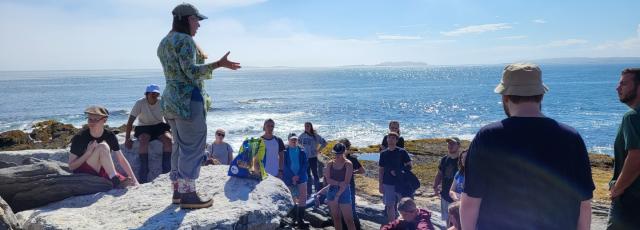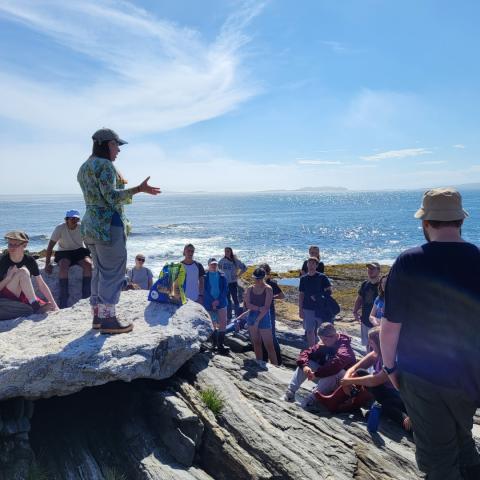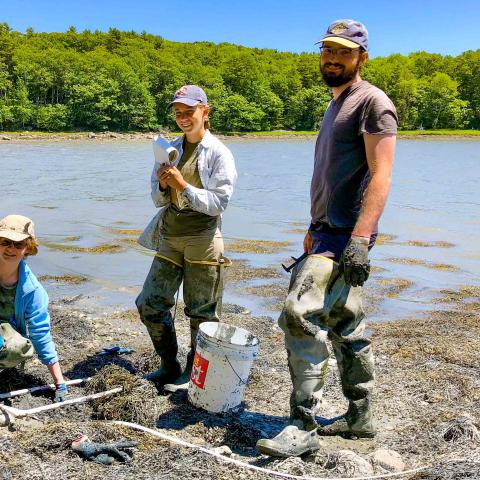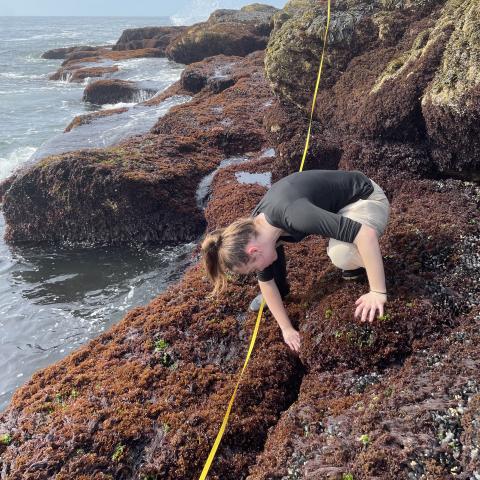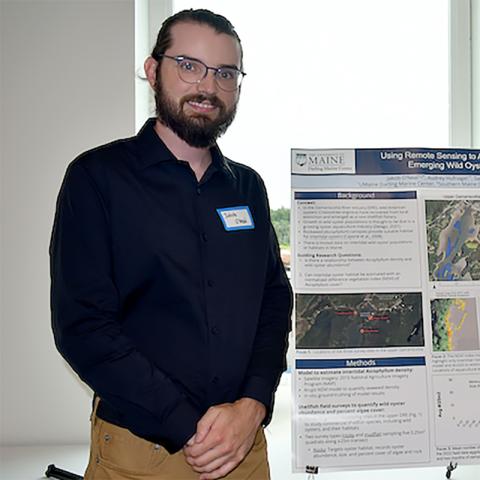Grant Year
2022, 2020Project Leader/s
Project Description
When the Darling Marine Center at the University of Maine developed its first-ever strategic plan in 2018, top-of-mind for Dr. Heather Leslie was the desire to build a collective identity for the Center rooted in its strong tradition of community engagement, applied research, and experiential education programs. “While the DMC has hosted undergraduate researchers for decades, training has largely been ad hoc, and shaped primarily by individual faculty research interests,” explained Leslie, who serves as Director and also Professor of Marine Sciences based at the DMC’s Walpole campus. “With Thoreau Foundation support, we saw the opportunity to transform these efforts from individually-led undertakings into a cohesive commitment of the Darling Marine Center as a whole.”
With the support of the Thoreau Foundation, the DMC is developing a program for undergraduate students focused on environmental leadership and engaged scholarship. The program has three major elements. First, each year two cohorts of students associated with the DMC participate in a series of workshops focused on environmental leadership, engaged research and science communication. As of Spring 2023, four cohorts (totaling 79 students) have participated. Second, undergraduate interns are selected as Thoreau Foundation Fellows each summer; these students create individualized plans to develop their leadership, communications, and engagement skills further through place-based projects and also serve as resources for their peers. To date, eight Fellows have participated; additional Fellows will be selected in Summer 2023. Finally, engaged research by the Fellows and others are featured during an annual summer science symposium. This event provides an opportunity for student researchers to share their science and practice their developing communication and collaboration skills with other scientists, students, and community members.
No stranger to the Thoreau Foundation, Dr. Leslie previously led the Thoreau Foundation-supported Voss Environmental Fellows Program at Brown University. “The Foundation’s vision was central to my ability to create the Brown Environmental Fellows Program and continues to inspire my activities here in Maine,” recounts Dr. Leslie. “The kind of program we are creating at the DMC aligns perfectly with the Thoreau Foundation’s focus on undergraduates and development of sustainable, community-based partnerships to enable training of environmental leaders. Thoreau Foundation support is highlighting the importance of undergraduate training in environmental leadership and engagement within and beyond UMaine. This increased visibility is vital to the Darling Marine Center becoming nationally recognized as a center for engaged research and environmental leadership development.”
In addition to the approximately 80 students and faculty who are directly participating in this program each year, the program also benefits the hundreds of K-12 and university-level students who visit and conduct research at the Darling Marine Center annually, as well as the broader community with which the DMC is connected. Within five years, Dr. Leslie anticipates that every undergraduate who participates in residential research and education activities at the DMC campus will benefit from the hands-on, evidence-based training in engaged scholarship, leadership, and science communication that are at the heart of this program. As she transitions out of her role as Director in mid 2023 and returns to the faculty in Fall 2024, Dr. Leslie anticipates that the ethos and activities enabled by the Thoreau Foundation will be keystone elements of the work that she does in collaboration with students at the DMC long into the future.
Dr. Leslie is sober yet optimistic about the stakes for the work that she and her colleagues are undertaking at the DMC. “The challenges to creating an environmentally and socially sustainable future have never been more important to overcome. With climate change impacts emerging both locally and globally, concerns that scientists and other citizens have expressed for decades about the impacts of human activities on the biosphere are now reality. As scholars and students of sustainability, we have the responsibility and opportunity to shape our collective future, particularly locally.”
Through this program, DMC-based students are working together to tackle real challenges to the sustainability of our communities, locally and beyond.
